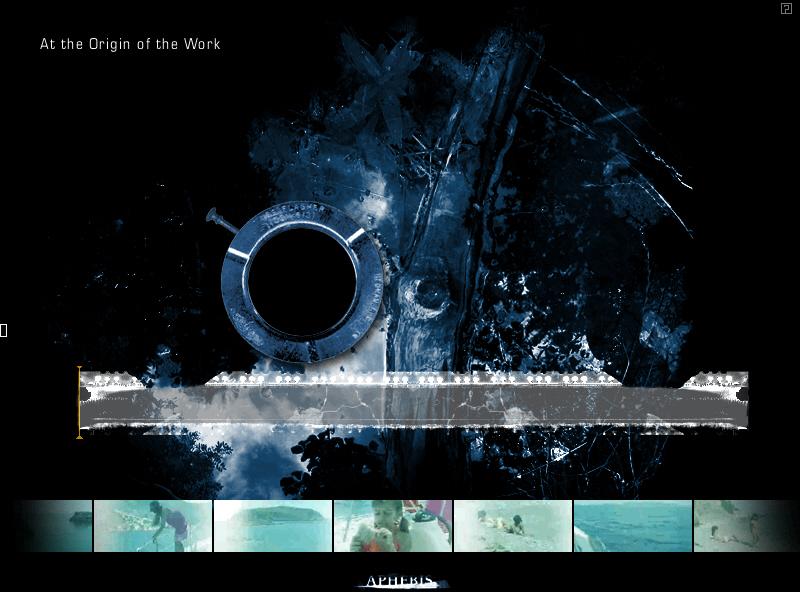If Missing: Since January weren't chock-full of video clips detailing its story of an occult serial killer, two stalwart investigators, and a decades-old murder, you could probably play the entirety of this Macromedia Flash-style game in your Web browser. At its heart, Missing is composed of a fairly lengthy series of puzzles and minigames--some based on logic and some on manual dexterity--that will help you unravel the mystery of a vanished couple who have been trailing a depraved murderer called the Phoenix. It's a decidedly unusual game, if nothing else.

Like EA's late, serialized adventure game Majestic, Missing tries to involve you in its storyline by interacting with you outside of the game proper, in the real world--namely, by sending you hint-filled e-mails from various characters and by requiring you to scour the Web for sites set up like a trail of bread crumbs by the game's developer, Lexis Numérique. This gimmick sometimes walks the line between being immersive and just hokey, but ultimately it does add a cohering element to what would otherwise be a disjointed, if mostly entertaining, set of puzzles and minigames.
Let's back up for a second: Your role in Missing is as an investigator trying to crack a mysterious CD-ROM sent to the employer of Jack Korski. Jack and Karen Gijman have been obsessively investigating a murder that occurred in 1975, Jack because he stumbled upon an old film reel of the killing and Karen because, well, her father was subsequently killed for filming it. This investigation leads the pair to many exotic locales throughout Europe, and eventually they stumble into the clutches of the Phoenix and are abducted. Once he's gotten his prey, the Phoenix's most sensible course of action is apparently to craft an elaborate CD-ROM program full of puzzles that, once solved, will reveal snippets of video that show Jack and Karen's investigation and will ultimately provide the location of the Phoenix and his kidnapped couple. This is, of course, where you come in.
Missing is broken up into a series of sections that each contain several puzzles for you to solve. After every one or two puzzles, you'll get a new video clip, as well as constant textual commentary from the Phoenix. Finish the five sections in the game, which will take you a good number of hours if you hunt down all the clues yourself (or naturally far fewer if you use an online walk-through), and you're treated to the slightly anticlimactic ending to the mystery, though the endgame does have a couple of interesting twists. The game is pretty linear and almost nothing changes between your first play-through and your hundredth, so there's not a lot of incentive to solve the case more than once, but at least it's pretty entertaining while it lasts.
As mentioned, the puzzles and minigames form the heart of Missing's gameplay. There's a surprising amount of variety and imagination in these, although they can be separated into just a few categories. Many of them provide you with clues that you can essentially punch into an Internet search engine in order to reveal one of the many Web sites associated with the game, which you can then plumb for whatever keyword or number you need to progress. Other puzzles are based more on logic and require you to interact with whatever objects or information are presented to you within the game itself. Finally, there's a smattering of minigames spread throughout that simply test your skill at precision control using the mouse or keyboard. The various puzzles are spread around evenly enough that you're never doing too much of any one thing, which helps keep things moving smoothly.
Things will keep moving smoothly, that is, if you happen to be uncannily skilled at tracking down the solutions to some of Missing's extremely esoteric puzzles via a Web search and with the occasional e-mails that come from characters, whom you almost never meet in the game. Sometimes the information you'll need can be found easily by simply searching for a key character's name on the Internet and checking out the most relevant site that pops up. Often, however, the information you need is hidden layers into a site and won't be obvious even when you reach the right page. It's fair to say that many of the puzzles in Missing fall far onto the mentally taxing side. Thankfully, the game has been out in Europe for some time now (under a different name: In Memoriam) and so a wealth of walk-through information is available should you need help. On a side note, you may want to disable e-mail spam filtering--we ran into problems receiving the game's e-mails at an address that uses aggressive spam-blocking software, but we had no trouble at all getting these e-mails with a free Web mail account.

Missing is put together using software from Macromedia and also using Apple's QuickTime, so the presentation and interface are on par with some of the best Flash games and sites you may have seen on the Web. The graphics are strictly 2D, but some puzzles feature appealing and unique animation techniques that add up to give the game a certain visual flair. The game is aesthetically dark and sinister, with occult imagery and other disturbing elements scattered liberally throughout--and apparently, someone on the art staff is a big fan of Se7en, since the styles are quite similar between that film and this game. The live-action sequences are generally well done--at least, much more so than you'd expect if you've played a lot of past PC games with integrated video. For the most part, the acting and narration are reasonably good, with only the occasional cheesy performance or silly-looking murder victim to mar the presentation. There's not a wealth of music in the game, but what is here does a good job of creating an ominous atmosphere.
If you fancy yourself a skilled Internet sleuth, Missing may prove to be an engrossing and unique experience. It's a pretty short game with little replay value, but at only $20 and with its unique use of e-mail and the Web, this could be a breath of fresh air to adventure fans dissatisfied with a sadly stagnant genre. Admittedly, the game is definitely not for everyone, what with its simple 2D presentation and mind-bendingly difficult puzzles, but those dyed-in-the-wool gamers who are into this sort of thing should find Missing: Since January original and rewarding.